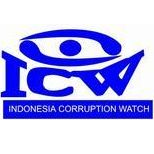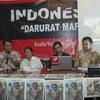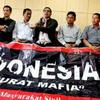Address: Jl. Kalibata Timur IV / D No. 6 Jakarta Selatan, Indonesia
Phone: 62 – 21-7901 885, 015 7994 Fax: 62 – 21-7994 005
Email: icw@antikorupsi.org
Website: www.antikorupsi.org
Indonesia Corruption Watch (ICW) is a non-profit organization formed by a group of people committed to empowering citizens to engage and participate actively in the fight against corruption.
ICW was founded in Jakarta on the 21st of June 1998 in the midst of reform movements that sought a post-Suharto government that was democratic, clean, and free of corruption.
ICW’s vision is to strengthen the position of the people to control the country and participate in decisions leading to democratic governance.
It espouses anti-corruption, economic justice, social justice, and gender equity.
ICW’s mission is to empower people by giving them knowledge about the political system, law, economics and bureaucracy.
In performing these missions, ICW take on roles such as:
- facilitating awareness and organizing the people in the field of the rights of citizens and public services;
- strengthening the capacity of the people in the process of making and supervising public policy;
- encouraging people’s initiative to dismantle the corruption cases that occur and report the perpetrator to law enforcement officers and to the wider community to stand trial and get a social sanction;
- facilitating capacity building in monitoring people under investigation for corruption;
- carrying out a public campaign to push for legal reform, politics and bureaucracy that is conducive to the eradication of corruption, and
- facilitating the strengthening of good governance in civil society and the enforcement of ethical standards among the professions.
ICW maintains its position for the poor society. It values social justice, gender equality, democracy, and honesty.
Among the ICW principles are towards integrity, accountability, independence, objectivity and confidentiality, and anti-discrimination
Among the ICW programs are: (a) public service monitoring program; (b) law and enforcement programs; (c) dissemination of information to the public; and (d) funding and sponsorship for its programs.



